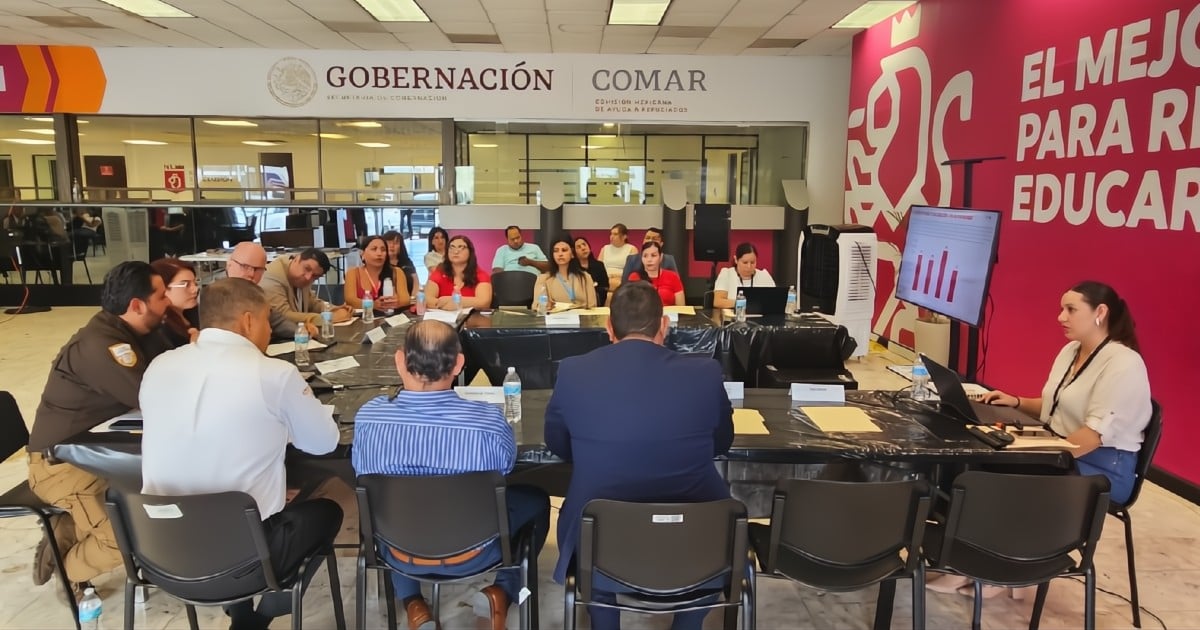Amidst a rising wave of immigration, many Cubans who have reached Mexico in hopes of settling there are facing systematic denials of their asylum requests by Mexican authorities, even when presenting solid evidence of political repression back home. According to reports gathered by Diario del Sur, nearly 90% of asylum applications from Cuban nationals are being rejected, despite the submission of proof regarding persecution and death threats from the Cuban regime.
In Tapachula, Chiapas, for instance, several applicants have voiced that the Mexican Commission for Refugee Assistance (COMAR) has not responded favorably to their applications. One affected individual, Juan Rodríguez Castillo, shared his experience of being physically assaulted by Cuban police for opposing the government, which resulted in him being left with a disabled hand. Despite providing documents corroborating his ordeal, his asylum request was turned down.
Another migrant, Osiel Rodríguez, expressed confusion over COMAR's refusal, noting that Mexican authorities claim the applicants left Cuba for economic reasons, failing to acknowledge the political persecution they faced.
The denial of asylum has led Cuban migrants to pursue legal alternatives, such as appeals, in their quest for international protection in Mexico. Nevertheless, the lack of a positive response leaves them in a precarious situation, without legal documentation to reside in the country or reunite with their families.
Faced with the asylum refusals and travel restrictions, some are contemplating continuing their journey to the United States or other parts of Mexico in search of safety and better opportunities.
So far this year, COMAR has received 16,376 asylum applications from Cuban citizens. However, the high rejection rate has raised alarms among human rights organizations, which urge Mexican authorities to reassess their asylum policies and ensure fair and transparent processes for those fleeing political persecution.
In their trek toward the United States, thousands of Cubans have traveled through Mexico, encountering numerous challenges along the way.
On the same day as the U.S. presidential elections in November 2024, migrant caravans, including Cuban nationals, set out from southern Mexico toward the U.S. border, seeking attention from both governments for a legal migration plan.
The mass exodus of Cubans is driven by a severe economic and social crisis in Cuba, marked by shortages of food, medicine, and basic goods, alongside rampant inflation. The situation has worsened since the protests in July 2021 and the subsequent government crackdown, prompting many Cubans to seek better opportunities outside the island.
Addressing Cuban Migration Challenges
Why are Cuban asylum applications being rejected in Mexico?
Mexican authorities have been denying Cuban asylum applications, often arguing that applicants left Cuba for economic reasons, disregarding evidence of political persecution.
What alternatives do Cuban migrants have after their asylum requests are denied?
Cuban migrants may seek legal alternatives such as filing appeals to obtain international protection in Mexico, although the lack of positive responses leaves them vulnerable.
How has the Cuban crisis impacted migration patterns?
The severe economic and social crisis in Cuba, exacerbated by shortages and inflation, has prompted a mass exodus, with many Cubans risking the journey through Mexico to seek better opportunities.
